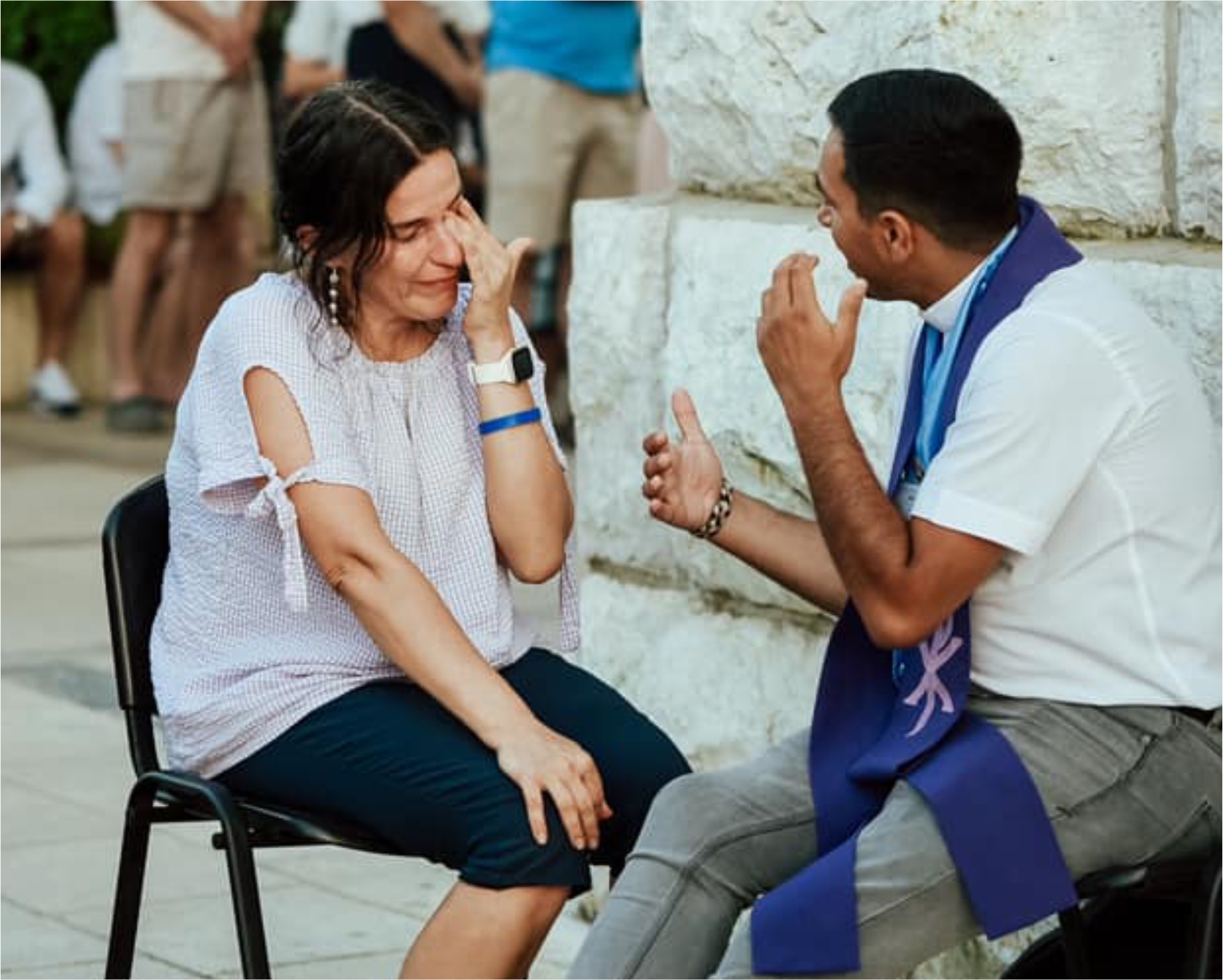
CONFESSION AND THE EUCHARIST
Holy Confession is the sacrament of reconciliation. Although God forgives men their sins, His creatures, whenever they repent and ask for forgiveness, He established through Christ a special sacrament by which He forgives sins and heals the soul from the wounds that are caused by sin.
The Eucharist is a banquet, and the forgiveness of sins and reconciliation are conditions to approach the eucharistic table. The promise of new clothing that we are about to receive from God, about which Jesus speaks, encourages us to go for confession to be washed of our sins by the power of the love of God. (Cf. Matt 22:1-14)
If a believer has not committed any mortal sin, if he does not feel a grave inner disorder in his soul, he can approach Holy Communion. However, to approach Holy Communion, it is not enough to be pure from sin. We also have to believe that Christ is present in the Eucharist. St Paul reproaches Christians for some vices concerning the celebration of the Eucharist. He speaks about their selfishness in their mutual relations and that they do not discern the Body of Christ in the eucharistic Bread. (Cf. 1 Cor 11:23f)
For an authentic eucharistic life, we need regular confession. According to Our Lady’s messages and her teachings, we should approach sacramental confession once a month. When we examine our conscience before confession, we should always ask ourselves about gratitude and love, about the generous love that gladly gives to the poor because it recognises Christ in everyone. We should always present to the merciful heart of the Father these kind of sins and omissions, and pray for forgiveness of our sins and for healing of the wounds that were caused by sin. Before each eucharistic celebration, together with others, we should ask for forgiveness and healing.
Nowadays many faithful approach the so-called common confessions with general absolution and do not see the purpose of individual confession any more. We want to underline that the general, common confession of sins – which happens at the beginning of each eucharistic celebration or is organised in some parishes several times a year – cannot replace individual confession. We need to say also that individual confession does not exclude the possibility of common absolution. The Christian soul that enters into the eucharistic mystery and love, will become more and more sensitive and will detect more easily what is not right. It will free itself more easily from spiritual disorder and grow more firmly into the mystery of eucharistic love and so become a living Eucharist.











